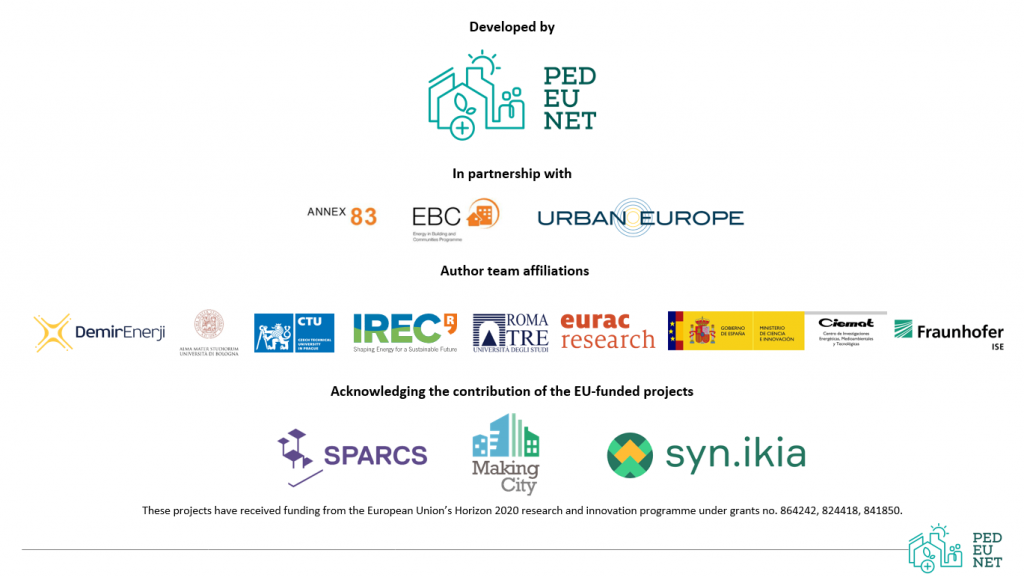| D1P001: Name of the project | |
| D1P001: Name of the project | COPPER |
| D1P002: Project assigned code | |
| D1P002: Project assigned code | F-DUT-2022-0352 |
| D1P003: Start date | |
| D1P003: Start date | 01/24 |
| D1P004: End date | |
| D1P004: End date | 12/26 |
| D1P005: Ongoing project | |
| D1P005: Ongoing project | Yes |
| D1P006: Funding programme/financing model | |
| FP7/H2020/HEU/DUT | no |
| Interreg | no |
| National funding | yes |
| National funding | DUT Partnership |
| Public-Private Partnership - please specify | no |
| Other | no |
| D1P007: Estimated project costs (Mill. €) | |
| D1P007: Estimated project costs (Mill. €) | 1.61 |
| D1P008: Description of project objectives/concepts | |
| D1P008: Description of project objectives/concepts | Rising energy prices are impacting households’ energy bills, and citizens increasingly want to contribute to the renewable energy transition. The solution may lie in more integrated energy planning. To better address problems such as lack of organisation and information within the energy system, the COPPER project is working with citizens from local energy communities (ECs) in Portugal, the Netherlands, Denmark and Norway. The project aims to harness the potential of citizen involvement in energy planning to create people-centred Positive Energy Districts (PEDs). By facilitating energy information among citizens and modelling energy systems, experts plan to develop and scale up best practices for engaging citizens in energy planning across Europe. |
| D1P009: Description of project upscaling strategies/potential | |
| D1P009: Description of project upscaling strategies/potential | |
| D1P010: Number of PED case studies in the project | |
| D1P010: Number of PED case studies in the project | 5 |
| D1P011: Case Study | |
| D1P011: Case Study | |
| D1P012: Description of project expected impact | |
| D1P012: Description of project expected impact | |
| D1P013: Standardization efforts | |
| D1P013: Standardization efforts | |
| D1P014: Sources | |
| D1P014: Sources | |
| D1P015: Can you specify a suitable contact person regarding the load-management approach within your PED project? | |
| Name | Dr. Mark Wiering |
| mark.wiering@ru.nl | |
| D1P016: Would you be willing to share data from your PED project for research purposes? | |
| D1P016: Would you be willing to share data from your PED project for research purposes? | Yes |

Authors (framework concept)
Beril Alpagut (Demir Energy); Giulia Turci (University of Bologna); Michal Kuzmic (Czech Technical University in Prague); Paolo Civiero (Università Roma Tre); Serena Pagliulia (University of Bologna); Oscar Seco (CIEMAT); Silvia Soutullo (CIEMAT); Daniele Vettorato (EURAC Research, IEA Annex 83); Bailador Ferreras M. Almudena (CIEMAT); Vicky Albert-Seifried (FHG ISE)
Contributors (to the content)
Laura Aelenei (LNEG), Nienke Maas (TNO), Savis Gohari (OsloMet), Andras Reith (ABUD), Ghazal Etminan (AIT), Maria-Beatrice Andreucci (Universita Sapienza), Francesco Reda (VTT, IEA Annex 83), Mari Hukkalainen (VTT), Judith-Borsboom (Locality), Gilda Massa (ENEA), Jelena Ziemele (University of Latvia), Nikola Pokorny (CVUT), Sergio Diaz de Garayo Balsategui (CENER, IEA Annex 83), Matthias Haase (ZHAW, IEA Annex 83), Christoph Gollner (FFG, JPI UE), Silvia Bossi (ENEA, JPI UE), Christian Winzer (Zurich University of Applied Science), George Martinopoulos (Centre for Research and Technology Hellas), Maria Nuria Sánchez (CIEMAT), Angelina Tomova (Energy Agency of Plovdiv), Oya Tabanoglu (Demir Enerji), Jelena Brajković (University of Belgrade), Juveria Shah (Dalarna University), Michela Pirro (ENEA), Francesca Sabatini (University of Bologna)
Implemented by
Boutik.pt: Filipe Martins, Jamal Khan
Marek Suchánek (Czech Technical University in Prague)